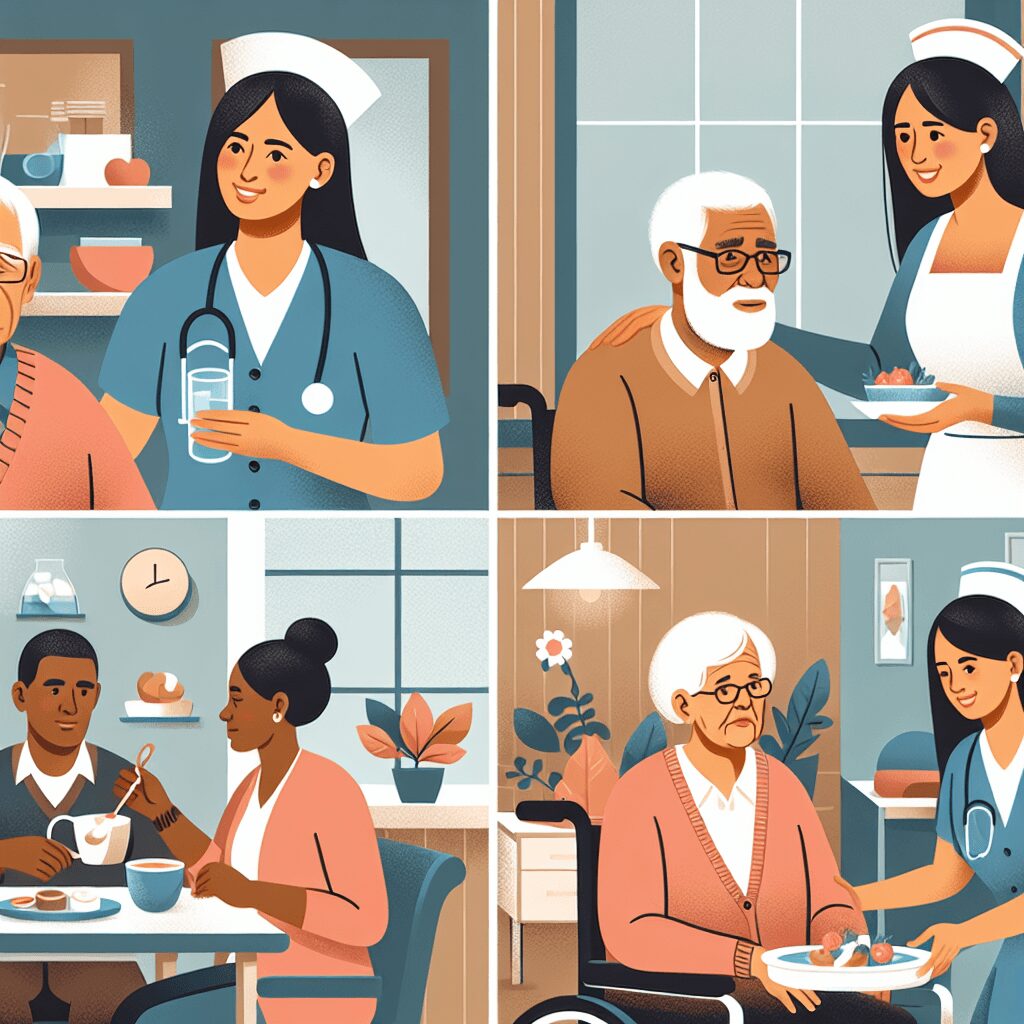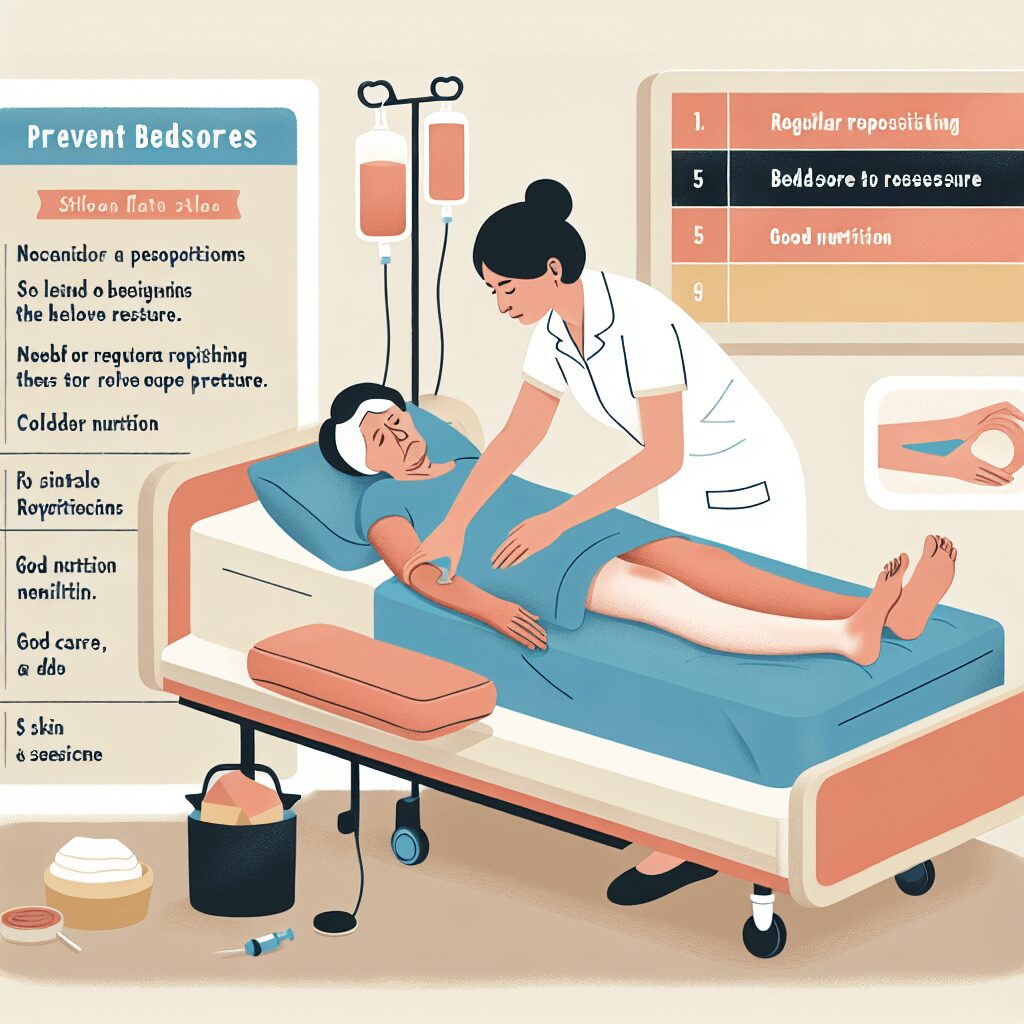Do you want to provide excellent care for your loved ones at home in Houston?
With the rising need for home health care services, it’s crucial to understand the best practices to ensure their well-being and safety.
This article will cover everything from choosing the right provider to creating a personalized care plan for your loved ones in Houston.
Let’s explore these best practices together to guarantee top-quality care for your loved ones.
Home Health Care in Houston
Complete Guide to Home Health Care in Houston
Home health care in Houston involves providing medical services to individuals recovering from surgery or illness in their own homes. This care includes skilled nursing, speech therapy, occupational therapy, and caregiver assistance.
When comparing home health care to home care services, it’s important to note that home health care focuses on medical support, while home care primarily offers custodial care. This type of care is beneficial for patients needing post-hospital assistance, management of chronic health issues, or caregiver education.
Home health care agencies in Houston provide services such as daily living assistance, wound care, and physical therapy to help patients recover and achieve independence. Patients can choose from hourly rates, daily rates, or overnight services based on their needs.
The cost of care varies depending on the services required and the duration of care provided by the agency in Houston’s healthcare network.
Understanding Home Health Care
What is home health care?
Home health care offers medical services at home. It helps with recovery from surgery or illness, providing nursing, therapy, and caregiver help.
This type of care is different from daily living support. Home health care gives medical care, while home care helps with daily activities.
Providers linked to hospitals give post-hospital care. Skilled nursing like wound care and caregiver training is vital for chronic conditions. Therapy aids in regaining functionality.
Cost varies depending on services, such as hospice care or private nursing. Overnight and rest services are available too.
What does in-home health care do?
In-home health care services in Houston help individuals with chronic health conditions. They provide skilled nursing, physical therapy, and occupational therapy based on specific needs. These services allow patients to get medical care at home, aiding faster recovery and better chronic condition management.
Affiliated with HCA Houston Healthcare network, in-home care agencies offer various services. These include wound care, caregiver education, and help with daily living activities for complete patient care. Caregivers give companionship and hospice care when necessary. They also offer private duty nursing and intermittent skilled care for long-term nursing needs.
What services does home health care offer?
Home health care providers offer various services such as skilled nursing, physical therapy, occupational therapy, and speech therapy. Personal care assistants help with daily activities like bathing, dressing, and meal prep. Medicare covers services like skilled care, wound care, caregiver education, and medical supplies for home health care. Agencies connected to hospitals may also provide custodial care, homemaker care, and companionship for patients with chronic health issues.
Costs vary based on hourly rates and services offered. Home health care aims to aid in recovery and boost independence, playing a crucial role in the community’s healthcare system.
Hospice Care
Hospice care focuses on providing comfort and support to individuals with terminal illnesses. The main goal is to enhance quality of life and manage symptoms effectively.
Services in hospice care usually include:
- Pain management
- Emotional and spiritual support for the patient and their family
- Help with daily activities
- Medication management
- Planning for end-of-life care
The aim of hospice care is to offer a peaceful and dignified transition for the patient. It also provides emotional backing for the family during this tough period.
A team of professional caregivers, like skilled nurses, social workers, spiritual counselors, and volunteers, collaborates to ensure the patient’s comfort and well-being.
Additionally, hospice care may entail the use of medical supplies, durable medical equipment, and tailored therapies to meet each patient’s specific needs.
Personal Care Assistants
Personal Care Assistants in the home health care network offer important support to individuals in need. They provide a variety of services such as skilled nursing, physical therapy, and wound care. These caregivers help with daily living activities, offer companionship, and ensure patient comfort.
They may also be trained in hospice care, private duty nursing, and caregiver education to meet different needs, such as chronic health issues or recovery from a hospital stay. Certification in services like speech therapy or long-term nursing is important for delivering quality care.
Hourly rates, daily rates, and overnight services vary based on required care, including rest times and degenerative conditions. Personal Care Assistants affiliated with reputable healthcare agencies play a vital role in patients’ well-being and recovery at facilities like HCA Houston Healthcare.
Qualifications for Home Health Care
Caregivers providing home health care services in Houston must have specific qualifications. These include certifications and training in various areas like skilled nursing, speech therapy, occupational therapy, and caregiver education.
They should be prepared to handle tasks such as post-hospital care, chronic health issues, wound care, and other medical needs. Licensing requirements are in place for home health care providers under HCA Houston Healthcare regulations.
Professional caregivers associated with healthcare agencies need to meet these standards to ensure quality patient care. Custodial service providers require skills for daily living activities, homemaker care, companionship care, and hospice care.
Training in private duty nursing, intermittent skilled care, and long-term nursing care is necessary. Knowing the cost of care, including hourly rates and overnight services, helps caregivers provide support to individuals with degenerative conditions or recovering from surgery.
The qualifications and expertise of these professionals are vital for delivering effective and compassionate home health care services.
Medicare Coverage for Home Health Care
Medicare coverage for home health care includes services like skilled nursing, physical therapy, occupational therapy, and speech therapy. These services are covered for individuals needing help after hospital stays or dealing with chronic health issues.
To be eligible for Medicare coverage, one must be under a doctor’s care, use a Medicare-certified home health agency, and need intermittent skilled care. Coverage may also include medical supplies, durable medical equipment, and caregiver education.
Understanding the services covered under Medicare for home health care is important for patients and families to navigate the healthcare system effectively and receive the best care possible from affiliated agencies or caregivers.
Cost of Home Health Care per Day
The average cost of home health care per day in Houston can vary based on the services needed. Different services such as skilled nursing, physical therapy, custodial care, or companionship care have different hourly rates.
Factors affecting the daily cost include the level of care required (post-hospital recovery or assistance with chronic health issues), use of medical supplies, and durable medical equipment. The affiliation of home health care agencies with hospitals or healthcare networks can also impact costs.
Plus Care Network in Houston
Our Plus Care Network home health agencies include:
Our Plus Care Network home health agencies offer various services including skilled nursing, speech therapy, physical therapy, and caregiver education.
Professional caregivers help with daily activities, wound care, and hospice care. The network includes post-hospital facilities, agencies for post-hospital care, and in-home care providers.
Affiliated with HCA Houston Healthcare, these agencies provide intermittent skilled care for those with chronic health issues or recovering from surgery.
The facilities also offer long-term nursing care and medical supplies. Hourly rates, daily rates, and overnight services are available to meet different patient needs.
Caregivers are trained to assist with degenerative conditions, provide companionship, and offer custodial services.
Our Plus Care Network of hospitals includes:
Our Plus Care Network includes a variety of facilities. They offer services like skilled nursing, physical therapy, and occupational therapy. Hospitals in the network provide in-home care, caregiver education, wound care, and help with daily activities for patients with chronic health conditions.
Professional caregivers within the network offer services such as hospice care, private duty nursing, and intermittent skilled care. Patients can get medical supplies, durable medical equipment, and custodial services through our hospitals. Caregivers offer hourly care, daily rates, and overnight services to ensure patients get the rest they need.
Patients with degenerative conditions can benefit from specialized care in our network. Being part of Our Plus Care Network allows hospitals to provide quality care tailored to each patient’s needs. This makes them a community leader in home health care in Houston.
Plus Care Network Facility/Agency Selection
When choosing a facility or agency in the Plus Care Network for home health care services, there are several factors to consider:
- Types of services offered: skilled nursing, custodial care, speech therapy, physical therapy, caregiver education, wound care, and hospice care.
- Qualifications of professional caregivers.
- Availability of medical supplies and durable medical equipment.
- Support for daily living activities.
Understanding the rates for services like hourly, daily, and overnight care is important. Flexibility in care plans for post-hospital recovery or chronic health issues is also a key consideration. It’s helpful to know about affiliations with hospitals or other healthcare providers, availability of intermittent skilled care, long-term nursing care, private duty nursing services, companionship care, and rest times for individuals with degenerative conditions.
The main goal is to find a Plus Care Network facility that meets the patient’s specific needs and preferences within the HCA Houston Healthcare network.
Choosing the Right Home Health Care Services
What’s Right for Me?
When thinking about home health care options in Houston, individuals should first consider their specific needs and preferences.
They may require skilled nursing or custodial care, so it’s essential to evaluate the level of support needed to maintain their quality of life.
Different facilities and agencies in Houston provide various services, such as professional caregivers helping with daily activities, speech therapy, and wound care.
It’s important to understand the distinction between home health care and home care services to make an informed decision.
Patients moving from a hospital to a post-hospital facility might benefit from intermittent skilled care or long-term nursing care.
Considering cost factors like hourly caregiver rates and overnight care is also crucial.
Houston’s healthcare network, including HCA Houston Healthcare providers, offers a range of options for individuals with chronic health conditions or those recovering from surgery.
By exploring affiliated agencies, individuals can discover the right balance of medical care and caregiver support tailored to their unique needs.
Services That Can Be Self-directed
Self-directed services in home health care offer therapy, caregiver assistance, and custodial care. These services give individuals recovering from surgery or illness more control over their care. They also receive support from professional caregivers.
The benefits of self-directed services in home health care are:
- Personalized care plans tailored to the patient’s specific needs
- Increased independence in daily living activities
- Improved overall well-being
Patients can choose the level of assistance they need, allowing them to actively participate in their recovery process. They can also maintain a sense of autonomy within their home.
This approach promotes patient-centered care, empowering individuals to engage in their healthcare decisions.
FAQ
What are the best practices for home health care in Houston?
The best practices for home health care in Houston include regular communication with healthcare providers, proper medication management, maintaining a clean and safe living environment, and following a healthy diet and exercise routine.
How can I find a reputable home health care agency in Houston?
You can find a reputable home health care agency in Houston by checking for accreditation from organizations like The Joint Commission or the Better Business Bureau, reading online reviews from platforms like Yelp and Google, and asking for recommendations from healthcare professionals or friends/family.
What types of services are typically offered by home health care providers in Houston?
Home health care providers in Houston typically offer services such as skilled nursing care, physical therapy, medication management, and assistance with activities of daily living like personal hygiene and meal preparation.
What should I look for in a home health care provider in Houston?
Look for a home health care provider in Houston that is licensed, employs qualified and certified staff, offers personalized care plans, has positive reviews, and provides regular communication with the family. Examples include agencies like Comfort Keepers and BrightStar Care.
Are there any specific regulations or guidelines for home health care in Houston?
Yes, home health care agencies in Houston must follow regulations set by the Texas Department of Aging and Disability Services (DADS) and meet certain requirements for licensure and quality standards. These regulations ensure that caregivers are properly trained and competent to provide care to patients in their homes.








